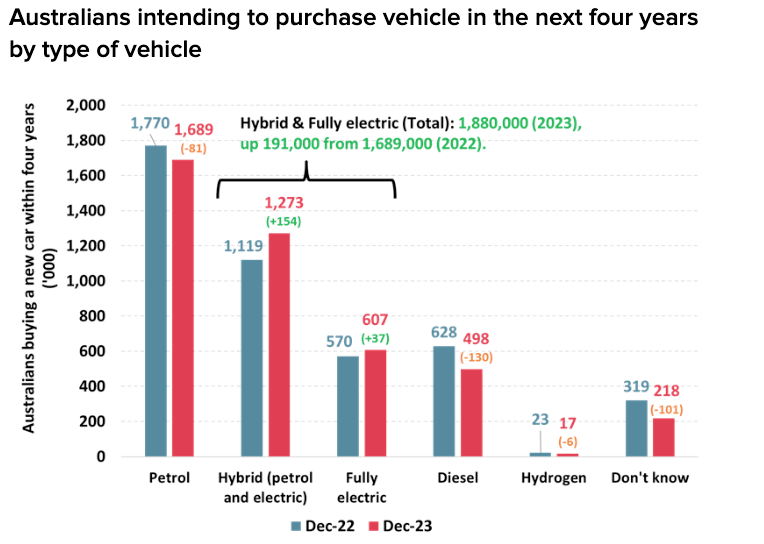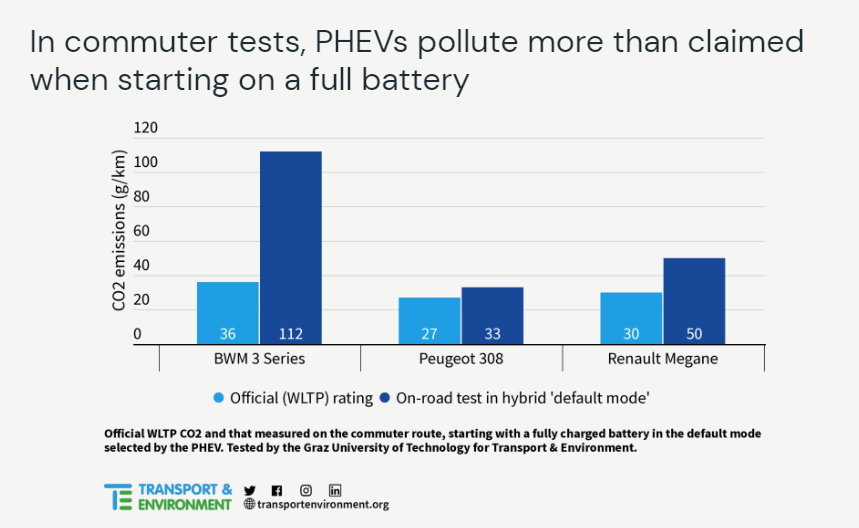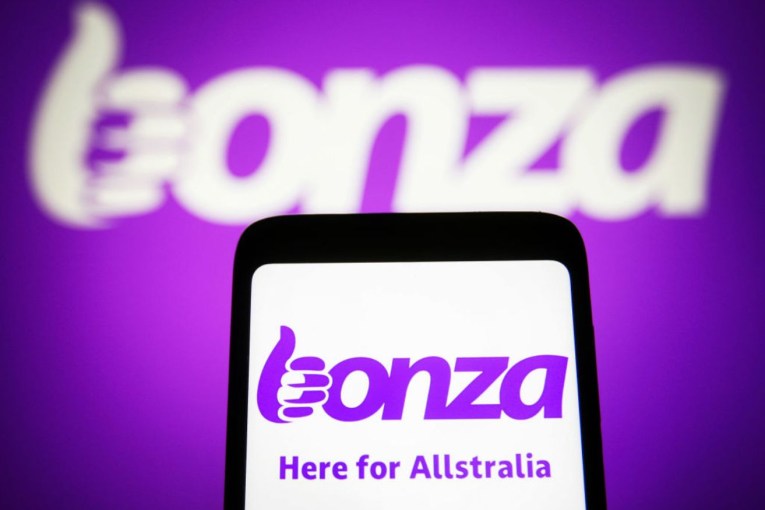Hybrids surge as record number of Australians plan to ditch petrol-only cars

Source: Climate Council
More Australians now plan to purchase an electric or hybrid as their next vehicle over a petrol car for the first time, with new data revealing the market has reached a tipping point.
Figures published on Wednesday by survey firm Roy Morgan showed that 1.8 million people preference hybrid or fully electric over the next four years over petrol (1.68 million people).
Diesel vehicles, meanwhile, are falling out of favour with consumers, with just 498,000 intending to purchase one, down a staggering 130,000 (or 12 per cent) in a single year.
Roy Morgan chief executive Michele Levine said hybrids (petrol and electric) are leading the charge away from petrol-only cars, with 1.27 million planning to buy one (up by 154,000).
“This growth far outstrips that for electric vehicles, up 37,000 to 607,000 (14 per cent of new vehicle intenders) and shows the perceived benefits surrounding hybrid cars are an increasingly attractive force for those in the market for a new car,” Levine explained.
Why hybrids are more attractive
Swinburne University professor Hussein Dia said the prevalence of hybrid purchasing intentions relative to electric vehicles mirrors a trend seen overseas in markets like the US.
He explained that the lower up-front purchase price of hybrids and lingering concerns about the availability of charging stations are pushing the trend, even as drivers ditch petrol only.
“They see that hybrids offer advantages over BEVs [Battery Electric Vehicles], while also having lower running costs than petrol or diesel vehicles,” Dia said.
“With the cost-of-living pressures and high fuel prices, that makes hybrids appealing for consumers comparted to petrol and diesel vehicles.”

Source: Roy Morgan
Griffith University lecturer Anna Mortimore said a comparison between Kona-branded electric vehicles and hybrids shows why the sticker price is “clearly still a disincentive with the uptake of EVs”.
“[The] price difference of a Kona hybrid ($46,500) and the Kona EV ($54,000) with a 505 kilometre range is $7500,” Mortimore explained.
“Kona EVs are more attractive for consumers who can home charge their vehicles but may need to upgrade their AC power and acquire a smart charger, which are additional costs.”
Hybrid surge presents emissions challenge
But the surge in hybrids presents a challenge because, unlike purely electric vehicles, they have a larger emissions footprint, which could make it harder to achieve net-zero targets.
Experts have warned that Australia must stop selling petrol cars by 2035 in order to have a chance to achieve the amount of transport emissions reductions that are needed by 2050.
Hybrids have been touted as an intermediate step between petrol-only and fully electric cars amid the climate transition, but critics have argued the vehicles are dirtier than billed and could slow down urgent action.
One study by Austria’s Graz University of Technology in 2023 found that popular hybrid models emitted far more emissions that manufacturers claim, including big brands such as BMW, Renault and Peugeot.
Dia said that EVs have much lower emissions over the life of the vehicle than hybrids and also boast lower running costs.
“There have been numerous studies overseas that showed hybrids are driven more using their petrol/diesel engines than the electric motor, and that their real-world fuel consumption and emissions are much larger than reported/claimed by car manufacturers,” he explained.
“This can be particularly problematic if governments are offering purchase incentives for hybrids while they are still largely operating as a petrol or diesel vehicle.
“It is also problematic for drivers who may get a false sense that they are doing the right thing by choosing a green vehicle while in real-world conditions it is operating as a petrol/diesel vehicle.”

Source: Graz University








